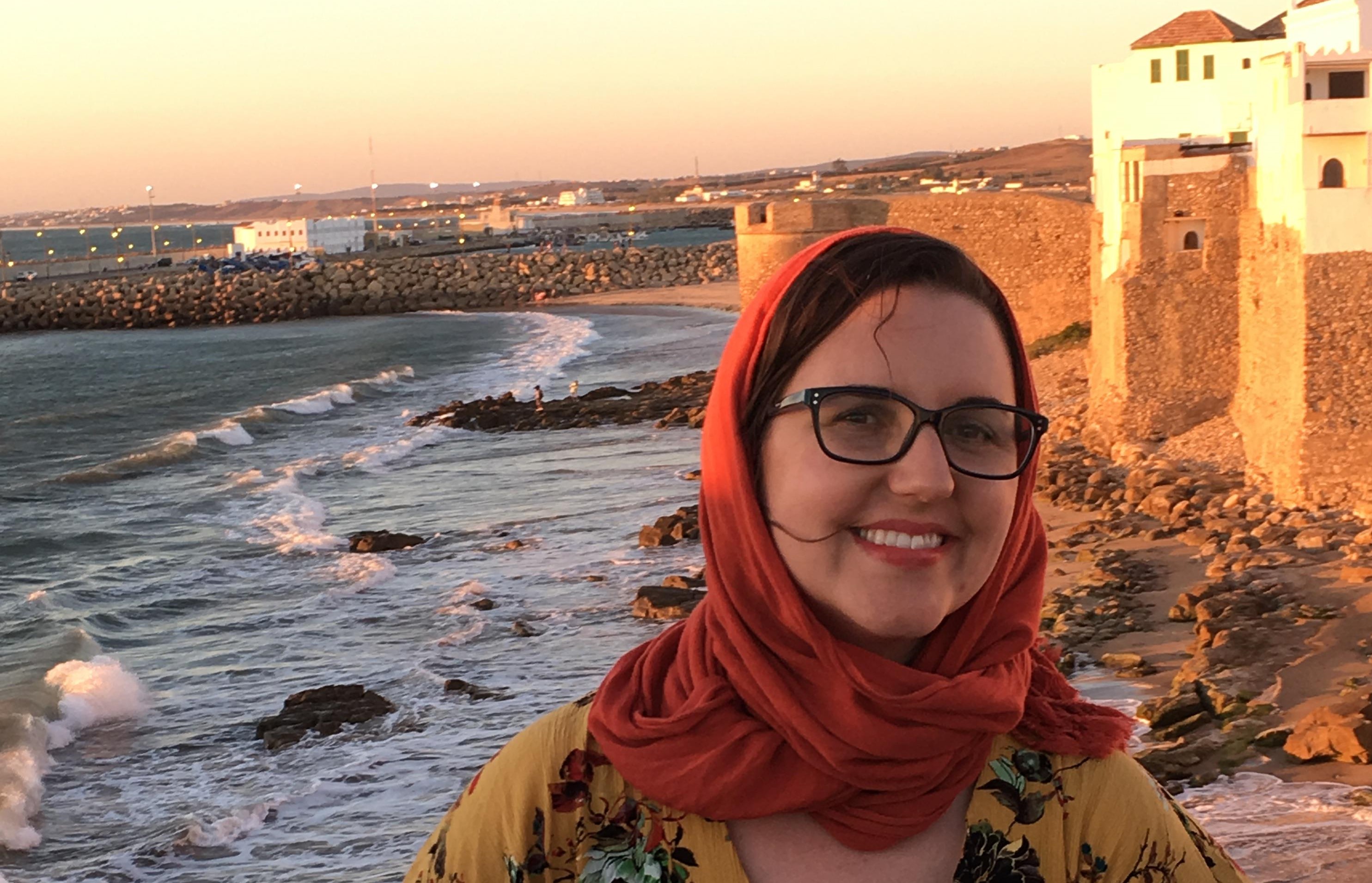Reflecting on Education Post-911

America’s teachers were among the first responders on September 11, instantly becoming students’ source of information and calm. In the years following the tragedy, multiple teachers have turned to Fund for Teachers for grants to develop strategies and resources that help students process what happened and also provide context for those not yet born when the planes flew into the World Trade Center. One such FFT Fellow is Julie Gallegos, teacher at Bret Harte Middle School in Oakland, CA.
In 2017, she spent one month in Morocco participating in an intensive Arabic language course and visiting sites of historical and cultural significance to create curriculum that promotes understanding of Islam among Muslim and non-Muslim students.
As a teacher and instructional leader in a diverse middle school program for recently arrived immigrant students, all of Julie’s students are English Language Learners. Despite a growing number of students arriving from Arabic speaking countries, the school had no classroom teachers who spoke the language or had even studied the Islamic culture.
“I am passionate about being an advocate for my immigrant students and their families,” said Julie. “I already had an understanding and knowledge of Spanish and Latino cultures, which prepared me to be a culturally-informed educator for students of this background. However, considering the current political climate regarding Muslims and immigration, I felt it was critical for me to be informed and ready to speak and act on behalf of our Muslim students.”
Julie chose Morocco as her fellowship destination due to its rich and diverse history, as well as a large number of religious and culturally-significant Islamic sites. (Morocco is also one of the few Islamic countries for which the US State Department has not issued travel advisories.) For two weeks, she enrolled in Dar Loughat, a language institute in Tetouan, where she spent mornings in language classes and afternoons and weekends joining excursions to local cultural and religious sites. Her experience also included a homestay with a local family. Julie joined a 14-day guided tour of Morocco for the second half of her fellowship, filming mosques, universities, museums and, especially, interviews with people in large cities and small villages to inform lessons for students and professional development for colleagues.
“What struck me most about Morocco is how peacefully different cultures and religions of people are living together. In the city of Tetouan, Muslims, Christians, and Jews live together in close quarters as neighbors and consider each other brothers and sisters. The people I met connected with each other through their common humanity and didn’t view religious or cultural differences as a barrier. Witnessing this type of human connection inspired me to plan team-building and cultural exchange opportunities for my students to help them better connect with and understand each other.
Julie now uses her experiences and insights not only in her classroom, but also in supporting her role as liaison with the school’s Family Resource Center, which facilitates the intake process for new students. She believes her new, basic knowledge of even simple Arabic phrases will indicate to families that the school community cares about all students and that teachers are making an effort to understand their cultures.
Additionally, as an instructional leader at her school, Julie is working to design workshops for her colleagues that discuss implications for teaching Muslim immigrant students and facilitate cross-cultural understanding among the students of diverse backgrounds.
“Studying Islam and Arabic in Morocco allowed me to learn about Islamic cultures, customs, and values and different education systems our students may be coming from so that I can share this knowledge with teachers,” said Julie.”I will design a program to share this information and also address teachers’ questions and misconceptions about our students and their cultures and religion. Overall, my goal is to help lead the staff at my school in being more inclusive and understanding of our Muslim students.”
 Back to Blogs
Back to Blogs
